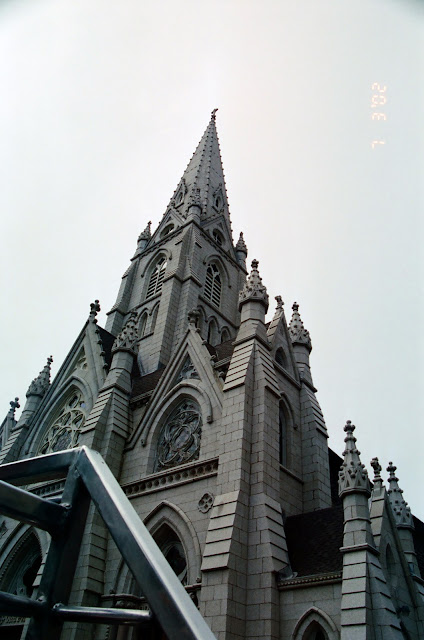Last night, a friend reached out to see how I was doing. It was a thoughtful gesture, as such acts of kindness are increasingly rare. As we caught up on each other's lives, he shared his recent travels and how certain Canadian cities, despite colder temperatures, seemed to possess a warmer atmosphere, particularly in terms of historical architecture and cultural experiences.
I mentioned my fondness for Halifax, Nova Scotia(1), and hinted at the possibility of writing a blog post about the city.
We all share a common experience: being born in a place where success may be hindered by various factors, often unrelated to economic prosperity. In fact, achieving financial success can be easier in corrupt third-world countries than in Canada. Immigrants, driven by desperation and a desire for a better life, often possess a unique blend of courage and determination.
Canada has historically been a welcoming country for immigrants, regardless of their legal status. People don't embark on such perilous journeys without compelling reasons. They're often fleeing inequality, corruption, and a bleak future.
Once immigrants cleared medical inspections in Halifax, they would often board trains to travel to various destinations across Canada.
Halifax is an inspiring place, filled with stories of hope, tears, and emotions. Reflecting on my own journey, I feel a profound sense of gratitude for the opportunities Canada has provided. Even the less glamorous jobs, like cleaning toilets at Future Shop, were part of the process and contributed to my success.
On December 6, 1917, during World War I, a French ship attempted to navigate the narrow passage known as "The Narrows," which connects Bedford Basin to the open ocean. Due to the natural conditions of the area, the passage could be closed to marine traffic using a submerged metal net. This net, designed to mimic the appearance of underwater rocks, would have deterred German submarines from entering the basin.
The French ship, carrying a dangerous cargo of TNT and other explosives, collided with a Dutch ship while entering the Narrows at excessive speed. The collision ignited a fire on the French ship, which quickly escalated out of control. Later that day, a series of massive explosions rocked the city. Mistaking the initial blasts for fireworks or a celebratory event, many people gathered on both sides of the basin to witness the spectacle. Tragically, the entire cargo of the French ship eventually detonated, devastating the city of Halifax.
(c) I personally took these photos and own the rights to them.
Please feel free to use them as you wish.



















































Comments
Post a Comment